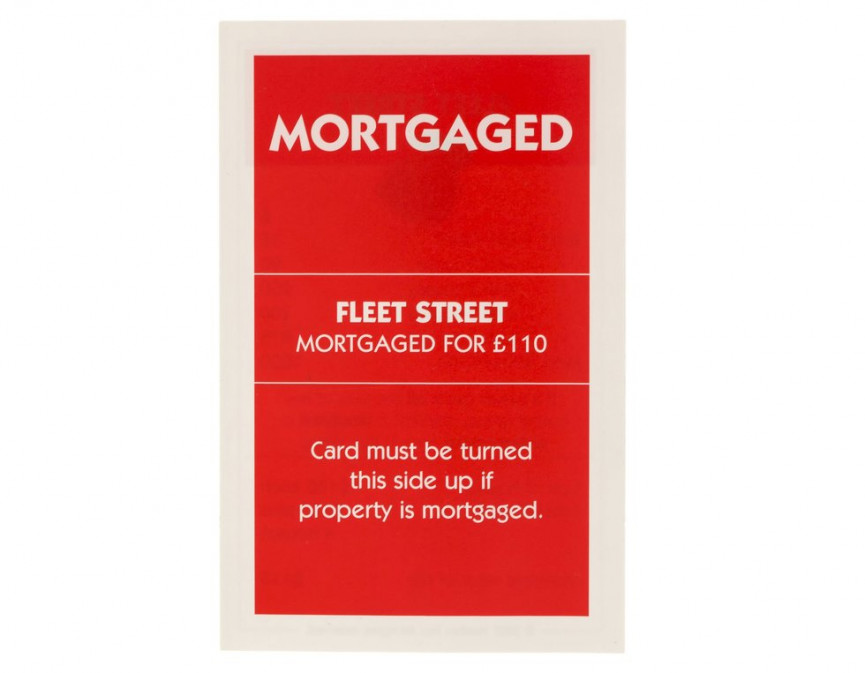A Mortgage Capital Commitment (MCFO) is a type of home mortgage pass-through unsecured general commitment bond that has a number of classes or tranches. MCFOs utilize capital from a swimming pool of home mortgages that create earnings to repay investors their principal plus interest. Payments are gotten from home mortgages in the swimming pool and wesley group handed down to holders of the MCFO security.
MCFOs do not hold a lien on the home mortgages held by the security. They are simply obliged by contract to utilize the earnings from the home mortgages to pay their investors. MCFO owners have no legal rights to the actual underlying home mortgages, hence MCFOs are riskier than CMOs. Like CMOs, MCFOs are a form of mortgage-backed security developed through the securitization of specific property home mortgages that draw interest and primary payments from that specific swimming pool of home mortgages.

Like CMOs, MCFOs package home loans into groups with various payment qualities and run the risk of profiles called tranches. The tranches are repaid with home mortgage principal and interest payments in a specified order, with the greatest rated tranches coming with credit enhancement, which is a form of defense against prepayment risk and repayment default.
The mentioned maturities of MCFO tranches are determined based upon the date when the final principal foreclosing on a timeshare from a swimming pool of home loans is anticipated to be paid off. But maturity dates for these types of MBS do not take into account prepayments of the hidden mortgage and therefore might not be an accurate representation of MBS dangers.
CMOs, MCFOs and other non-agency mortgage-backed securities those mortgage bonds not backed by the government-sponsored business Fannie Mae, Freddie Mac or Ginnie Mae - were at the center of the financial crisis that led to the personal bankruptcy of Lehman Brothers in 2008 and led to trillions of dollars in losses on mortgage and countless house owners losing their houses to default.
In December 2016, the SEC and FINRA announced brand-new guidelines to moisten MBS danger with margin requirements for CMO and related MBS transactions.
All about How Much Does A Having A Cosigner Help On Mortgages
A mortgage pool is a group of home mortgages held in trust as security for the issuance of a mortgage-backed security. Some mortgage-backed securities released by Fannie Mae, Freddie Mac, and Ginnie Mae are understood as "pools" themselves. These are the simplest form of mortgage-backed security. They are also understood as "pass-throughs" and sell the to-be-announced (TBA) forward market.
Home loan pools, which are groups of mortgages, tend to have comparable qualities, such as issuance date, maturity date, and so on. While mortgage-backed securities are backed by home loan collateral with comparable characteristics, collateralized debt obligations are backed by security with varying attributes. An important advantage of mortgage pools is that they offer financiers with diversity.
Home mortgage pools are made up of home loans that tend to have similar characteristicsfor instance, they will generally have near the very same maturity date and interest rate. Once a lending institution completes a home mortgage deal, it normally sells the home loan to another entity, such as Fannie Mae or Freddie Mac. Those entities then package the home loans together into a home loan pool and the home mortgage swimming pool then functions as security for a mortgage-backed security.
A CDO is a structured financial product that pools together cash flow-generating assets and repackages this property pool into discrete tranches that can be offered to investors. A collateralized debt commitment is named for the pooled assetssuch as mortgages, bonds and loansthat are essentially debt obligations that serve as security for the CDO.
Home loan pool funds benefit investors seeking realty direct exposure due to the fact that they are a low-risk financial investment that moves separately of a stock and bonds and provide a predictable month-to-month earnings. Home mortgage swimming pool fund loans are secured by property and are described as hard money because unlike the majority of bank loans (which rely on the credit reliability of the borrower), hard money loans consider the value of the underlying home.
Since of their much shorter terms, hard cash loans are less susceptible to being impacted by interest rate swings, which implies it is a more predictable and reliable capital. Like mentioned above, mortgage swimming pool funds differ, where some focus on specific residential or commercial property types, while some are more basic. These distinction can affect danger and return, so it is very important to research the different mortgage swimming pools before diving in.
The Greatest Guide To How Much Are The Mortgages Of The Sister.wives
There's nothing much better than stepping out your back door on a hot summer season day and jumping in your own swimming pool. But be cautious when looking to purchase or refinance a house with a pool. That swimming pool can cause hold-ups in the mortgage procedure, or drown your loan application altogether.
Stubrud dealt with a client who desired a reverse mortgage, however had an empty, aging swimming pool on the property. Reverse mortgages follow FHA standards, which are particular about pool. "They don't want it to be a health threat or a safety danger that there's a huge open hole in the ground." So what did the client do? "How they handled it was that they filled it in," states Stubrud.
The pool stopped to exist. There were no other choices for this aging property owner who didn't have the cash to get the swimming pool in working order. However Stubrud says the client did raise an alternative concept. "They really wished to keep it and they were going have this below ground greenhouse.
Lots of house owners think that what's on your property is your service. While that's partially real, you welcome analysis to almost every inch of a house when you decide to fund it with the lending institution's money. It holds true for FHA loans as well as any other loan type. It comes down to security.
A pool that is a falling risk or is a breeding place for germs is a danger to the health of the residents. Not to discuss it opens the homeowner approximately suits (how common are principal only additional payments mortgages). The exact same requirements would use to things like a missing out on stairs outside the back entrance, missing hand rails, or exposed lead-based paint.
Repairing the swimming pool to get it into working order will allow the loan procedure to continue. When purchasing a home, this might be a tricky circumstance. It's dangerous to use your own funds to make repair work on a house that's not yours yet particularly pool repairs which can vary from a few hundred to a couple of thousand dollars - which mortgages have the hifhest right to payment'.
The Basic Principles Of How Many Mortgages To Apply For

There may be another way to make repairs, however. "The debtor will require to obtain a quote for the essential repairs," says Sarah Bohan, VP of Corporate Relations at MSU Federal Credit Union. "If the repair work are arranged to take location after the closing, the lender will normally request to hold 1.
You receive back any money left over after whatever's done. However don't count on this option, says Bohan. "Many lenders are not able to enable repair work after the home loan closes because they offer their loans on the secondary market and require to provide the loan within a set timeframe." Make certain your lender permits repair work after closing prior to you consent to purchase a house with a decrepit swimming pool.